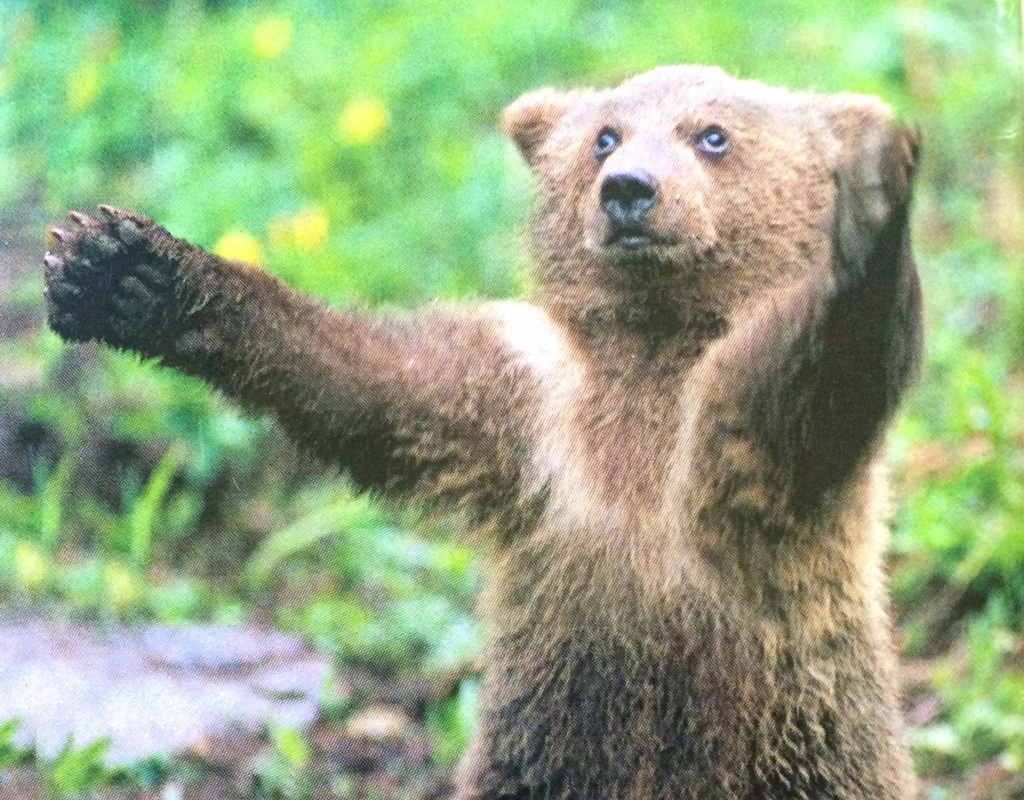|
We habituate ourselves to expect certain things, to desire certain vices, to keep a certain schedule, and act a certain persona. It's just what we're used to. It’s what everyone around us is used to.
But that doesn't mean that's who we really are. Black bears in the wild of Yosemite eat berries, grass, and insects. Sometimes they eat animals like fish, but by and large, and especially when they don't feel threatened, they don’t hunt and they are docile creatures. They're kind of adorable when you see them sitting in a meadow, basking in the warm sun, furrowing the soft ground for a meal. They're like a real-life teddy bear, just one you probably shouldn’t hug. When black bears met humans, they started to learn a different way of life--they picked up a habit. People food is high in calories, and way more tasty and filling than meadow grass. So when we started to give them people food, as the supervisors of Yosemite did for decades, the bears quickly learned to follow the path of least resistance and eat up. Wild bears became habituated to a new human way of living, one that involved convincing people to give them food. If those people were unconvinced, simply steal it. If they got in the way of the food, take them out. First we habituated them, and then allowed our cavalier attitude to that habituation to bite us in the ass, literally. We learned our lesson, thankfully, and now we've engaged in a decades long effort to de-habitualize the black bear. We stopped feeding them for show at Yosemite, so bears would stop expecting it. We put our food in bear boxes instead of cars or coolers, so the bears learned they can’t get food at a campsite. A habit, any habit, is only a condition we've created. That goes for the habit bears learned from humans, and it goes for all the habits we’ve taken on ourselves. It's hard to break a habit, for sure. Bears still visit campgrounds because the food smells good and they’re curious. But the more we change our patterns, the more the habit breaks. In Yosemite, bear incidents are down 97% since 1996. Our continued vigilance in minding our food when we visit Yosemite will ensure this new pattern continues. Maybe we could learn something from the habituation, and subsequent dehabituation, of the black bear. Observe the patterns and expectations we or others place on ourselves. Try to find where we made the mistake and how we perpetuated it. Then imagine a path forward where we break the habit. Even when you think you’ve dehabitualized yourself, that doesn’t mean it can’t come back. Habits are much easier to make than to break. For bears at Yosemite these days, some still look for people food. Those that end up in a campsite get scared off with beanbag and paintball guns. If they come back they get tranquilized, tagged, and brought to a distant region of the park. If they come back a third time, euthanization. We have a lot more than three chances when it comes to our own bad habits, but eventually they will catch up to us. Those habitualizations of vice and character will eventually bite us in the ass just like the black bear. If you’re trying to break a bad habit or any other pattern, be strong, persistent, and patient. Overtime it’ll get easier. You don’t have to be "that guy" just because you have always been that guy. You can change yourself for the better. We can all be dehabitualized, one decision at a time. |
Access Octomono Masonry Settings
blog searchauthorMy name is Jason Wise. Life's all about the journey, man. Find me on Instagram and Facebook. archives
May 2020
categories
All
subscribe |
